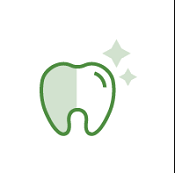Introduction
Wisdom tooth removal is a common dental procedure that many people undergo at some point in their lives. While the thought of having a tooth extracted can be intimidating, proper preparation can help ensure a smooth and comfortable experience. This blog post will guide you through the steps and provide useful tips to help you prepare for your wisdom tooth removal.
Consultation with your dentist
Before undergoing wisdom tooth removal, it is crucial to schedule a consultation with your dentist. During this appointment, your dentist will evaluate your oral health and determine if wisdom tooth extraction is necessary. They will also discuss the procedure, potential risks, and answer any questions you may have.
Understanding the procedure
It is essential to have a clear understanding of the wisdom tooth removal procedure. Your dentist will explain the process, including the use of anesthesia, the duration of the surgery, and the expected recovery time. This knowledge will help you mentally prepare for the procedure.
Arrange for transportation
Since wisdom tooth removal involves the use of anesthesia, it is important to arrange for transportation to and from the dental clinic. You may feel groggy or drowsy after the procedure, so having someone to drive you home is crucial for your safety.
Plan for time off
Wisdom tooth removal typically requires some downtime for recovery. It is advisable to plan for a few days off work or school to allow your body to heal properly. This will also give you time to rest and minimize any potential complications.
Follow pre-operative instructions
Your dentist will provide you with specific pre-operative instructions to ensure a successful procedure. These instructions may include fasting for a certain period before the surgery, avoiding certain medications, or adjusting your oral hygiene routine. It is crucial to follow these instructions carefully to minimize any risks.
Stock up on soft foods
After wisdom tooth removal, your mouth may be sensitive and swollen. It is recommended to stock up on soft foods such as yogurt, mashed potatoes, soups, and smoothies. These foods are easier to consume and will not irritate the surgical site.
Create a comfortable recovery space
Preparing a comfortable recovery space at home is essential for a smooth healing process. Ensure you have enough pillows to prop yourself up, as lying flat may increase swelling. Keep essentials such as ice packs, pain medication, and gau.
Summary
Preparing for wisdom tooth removal involves several important steps to ensure a successful procedure and a smooth recovery. This blog post will cover essential tips such as scheduling a consultation with your dentist or oral surgeon, understanding the procedure, arranging transportation, planning for post-operative care, and f learn the facts here now ollowing pre-operative instructions. By following these steps and tips, you can alleviate anxiety and make the process as comfortable as possible.
- Q: How should I prepare for my wisdom tooth removal?
- A: Before your wisdom tooth removal, make sure to follow any pre-operative instructions provided by your dentist or oral surgeon. This may include fasting for a certain period of time, avoiding certain medications, and arranging for someone to drive you home after the procedure.
- Q: What steps are involved in wisdom tooth removal?
- A: Wisdom tooth removal typically involves the following steps:
- Administering anesthesia to ensure you are comfortable and pain-free during the procedure.
- Creating an incision in the gum tissue to access the tooth.
- Removing any bone that may be blocking access to the tooth.
- Extracting the wisdom tooth.
- Cleaning the extraction site and stitching it up if necessary.
- Q: How long does it take to recover from wisdom tooth removal?
- A: The recovery time can vary depending on the complexity of the extraction and individual healing abilities. Generally, it takes about a week to fully recover from wisdom tooth removal. However, you may experience some swelling and discomfort for a few days following the procedure.
- Q: What can I do to promote healing after wisdom tooth removal?
- A: To promote healing after wisdom tooth removal, you can:
- Take prescribed pain medications as directed.
- Apply an ice pack to your face to reduce swelling.
- Stick to soft foods and avoid chewing on the extraction site.
- Keep the extraction site clean by gently rinsing with warm saltwater.
- Avoid smoking and using a straw, as these can dislodge the blood clot and delay healing.
- Q: What are the potential complications of wisdom tooth removal?
- A: While complications are rare, they can include infection, dry socket, nerve damage, and excessive bleeding. It’s important to follow post-operative instructions provided by your dentist or oral surgeon to minimize the risk of complications.
</dl

Welcome to my website! My name is Jonathan Northcote, and I am a dedicated and experienced Dental Technician specializing in Dental Beautification, Wisdom Tooth Extraction, and Teeth Grinding Solutions. With a passion for creating beautiful smiles and improving oral health, I am committed to providing exceptional dental care and solutions to my patients.
